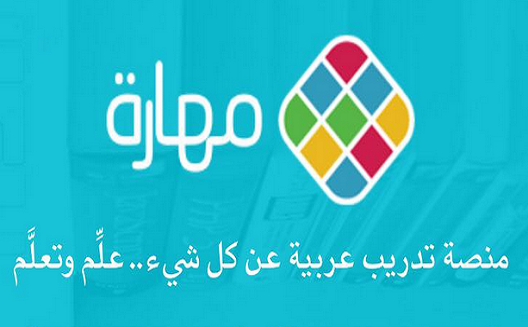Saudi’s Rwaq team hope to create community of educators

We are so close to an awakening in the Arab world. In the past three years there has been a lot to be hopeful about when it comes to education - initiatives in Jordan, Saudi Arabia and Egypt - have all been shepherding a generation keen on learning new skills.
Saudi Arabia, in particular, already gave us Rwaq in 2013, the first fully Arabic massive open online course (MOOC) platform; then they brought us Junnah, a healthcare app, earlier this year. Now the guys behind the Kingdom’s education first has brought us Maharah.
Launched at the start of 2015 the new platform provides courses on everything. The idea behind the platform is that it will allow anyone to register, create a course on any subject, and then offer that course to the public (either free or for a fee). “This is an introduction to individuals, educational and training institutions alike... [anyone] can take part,” said cofounder Sami Al Hussayen.
Good education means good economy
"Education comes in many types, such as public education, college education, skills training, and professional certifications,” says Al Hussayen. “The growth of any society or economy needs all these types ever since the launch of Arweqat Almarefa."

Al Hussayen is aware of the high demand for such courses in the region and this is why Maharah won’t be the last of its kind. Complimenting its predecessor Rwaq, which focuses on academic university topics, Maharah specializes in skills training, from project management, design, to network management, operating systems, and others. The two platforms are not in competition.
As an example, a professor can offer courses on both platforms, and anyone can teach and learn through Maharah, meaning that a student in one session may become a teacher in another one.
Teach and learn
With Arabic being the only language on the platform Maharah is working to facilitate the knowledge transfer process to all Arabic speakers. "Arweqat Almarefa focuses on providing the content in Arabic to enrich the language, and offer a chance to receive training to all those who do not speak another language."
The skills are in demand. According to the cofounder, 44 sessions are being offered at the moment on Maharah, including one on the basics of photography - this one alone has so far attracted 325 participants and provided 24 lectures. There are also courses on ecommerce, French language, and programming, in addition to a large number of courses on various computer programs. Al Hussayen tells us that, in order to ensure the quality and availability of the courses, a course will only becomes available when the required number of participants is achieved.
Where does the money come from?
Courses are made available free and paid for, it depends on the person providing the course. A paid for course will have profits shared with the platform, and this profit share will vary based on whether the course provider is an individual or an entity.
"Financial returns are currently shared in half,” says Al Hussayen. Maharah receives a 50% commission on each course enrollment and the trainer gets the other 50%. The paid courses feature will be activated later on and participants can either pay online through a credit card; wire transfer; the SADAD payment system, which is very effective in Saudi Arabia; or PayPal. The trainer will determine the course prices.
Government’s billions compliments entrepreneurs’ work
Despite the excitement of Al Hussayen and his partner Fouad al-Farhan for these educational initiatives, the Saudi government remains an important and major player in the education sector, pouring billions into it.
The government already launched the King Abdullah project to develop education, with a total budget of 80 billion SAR. The program focuses in one of its clauses on integrating technology in education, connecting schools to the internet, as well as enhancing e-learning and smart classrooms. Al Hussayen considers all of these allocated funds as a complement to their initiative.
"The funds allocated for education in our country are delightful but not enough... Everywhere in the world, including Saudi Arabia, the four sectors – the public, the private, the startups, and non-profit organizations – complement each other, so we believe that we complement each other. The results will be greater if these four actors coordinate to serve education, because you can't clap with only one hand."
Al Hussayen explains that the government support is not enough and talks of creative solutions: "Based on the UN statistics, we are trying to satisfy the growing need for higher education in the world. Every week, three new universities should open and each should accommodate 40,000 students in the next 12 years. This is impossible to achieve without creative solutions."
Think, prepare, share, win
Al Hussayen and al-Farhan often use expressions such as "renaissance, growth, knowledge, and community building.” With such words in mind, you can see the long-term vision they are building together, and that is why Maharah will not be the last initiative. A new initiative will be coming soon, so keep your account on Rwaq active because you will soon need it to use it to log in to other services. "The service was developed to use the Rwaq account on other websites and an agreement that will be announced shortly has been signed with several educational websites in the Arab world for this purpose."



